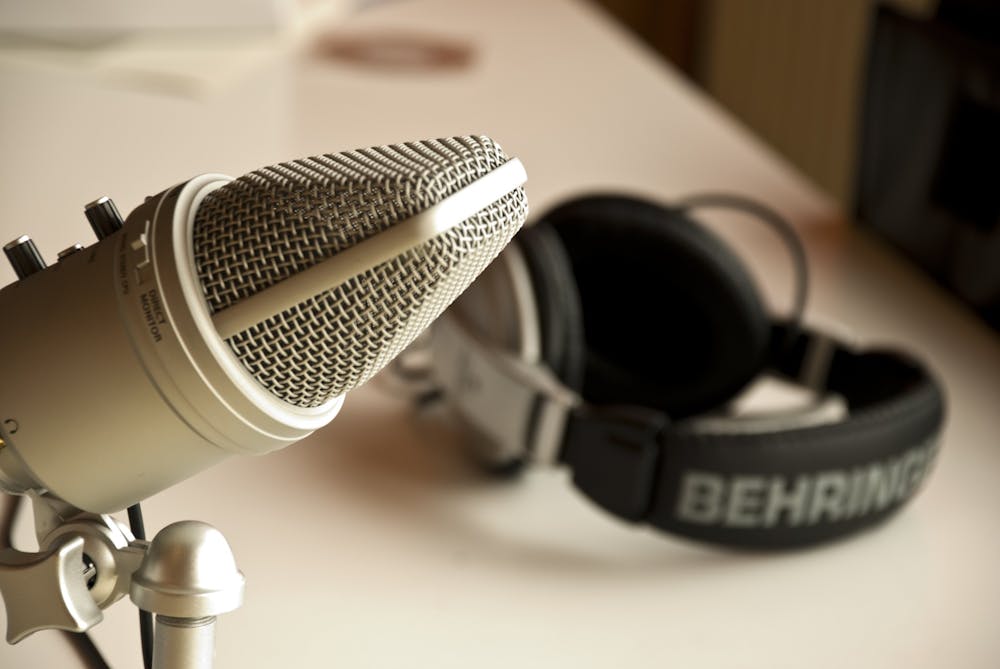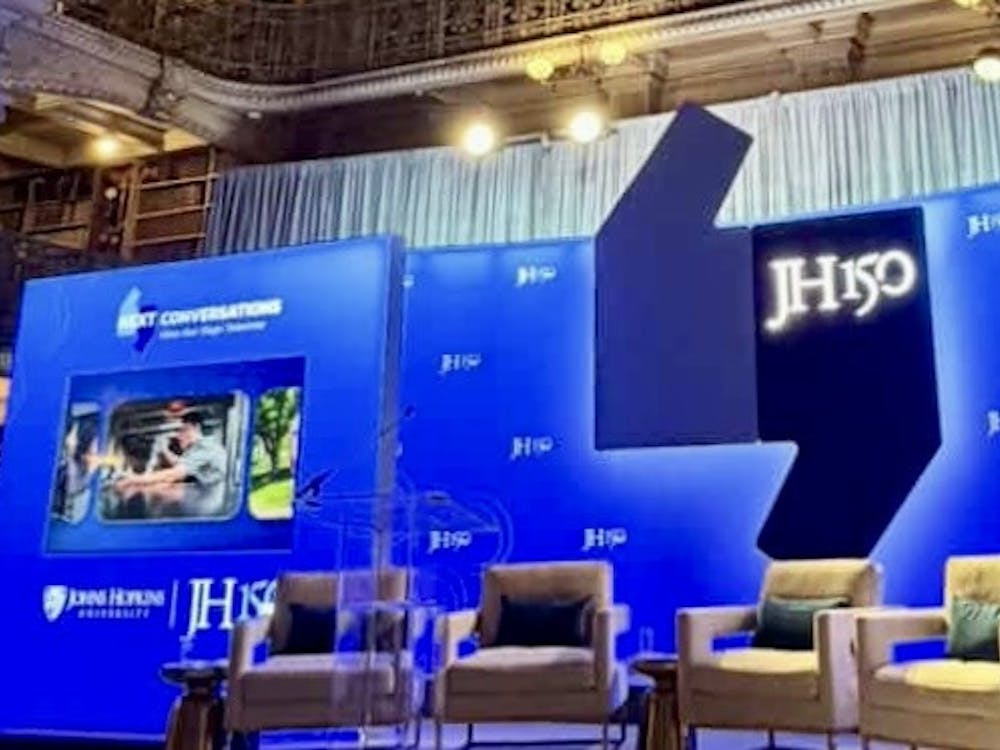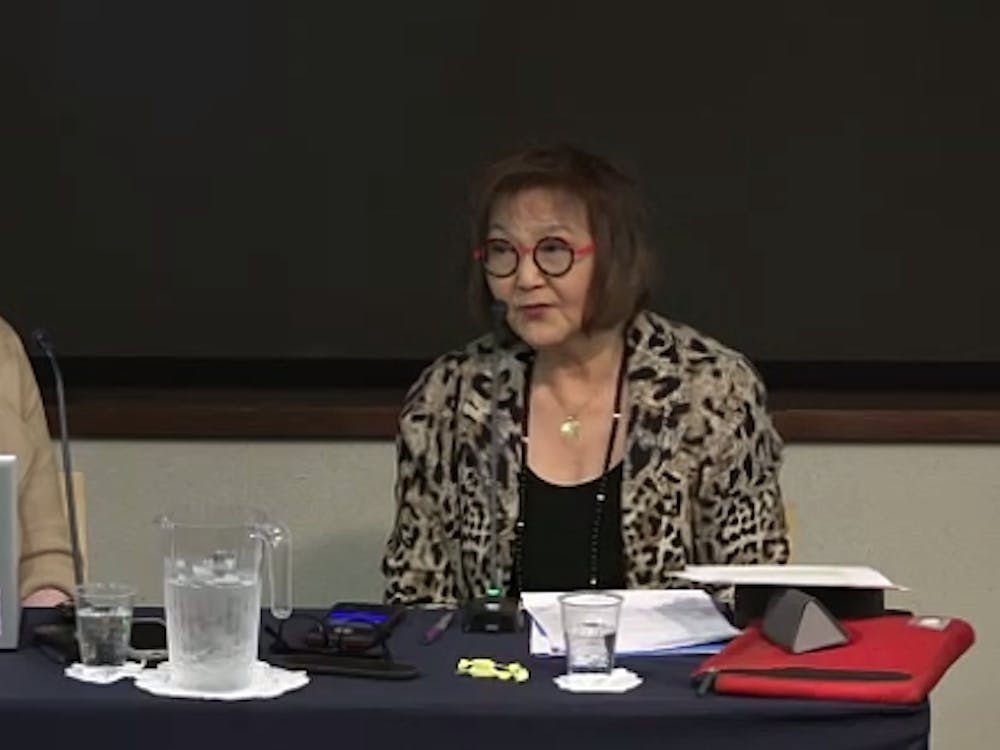Last year, a group of Hopkins students got together to develop a platform that would help pre-health students engage with medical professionals from across the University.
The result was the Professionals in Health Podcast Series (PIHPS), in which various health professionals share their personal experiences and offer advice to pre-health students. Funded by Lambda Epsilon Mu, the Latino Pre-Health Honor Society, PIHPS uploads their episodes to Spotify and iTunes, making the content easily accessible to anyone interested in health professions.
The podcast was created by Julia Duvall, senior producer of PIHPS and member of the Class of 2019; Isaac Bernstein, executive producer and member of the Class of 2019; and Francisco Lopez, logistical coordinator and senior Molecular and Cellular Biology major.
In an interview with The News-Letter, Duvall explained how the podcast format provides students the freedom to learn whenever and wherever they are.
“[The podcast is] another modality for busy Hopkins students to keep learning. Students can listen to our podcast whether they’re walking to class, at the gym, doing the dishes, or cooking,” Duvall said.
Junior Philosophy major Smitha Mahesh, who serves as a co-creator on PIHPS, noted how unique the experience of working on the podcast is.
“Hopkins is a beautiful, innovative hub of thinking,” Mahesh said in an interview with The News-Letter. “[Through the podcast] students can network, practice interviewing skills and get great insight into the lives and work of medical professionals.”
PIHPS interviews professionals from a wide range of specialties with the belief that they all contribute to the health field in a unique, meaningful way. PIHPS has interviewed doctors, nurse practitioners, nurses, physician assistants and Masters in Health students. Mahesh explained the importance of the podcast representing diverse careers so that any listener can find their niche.
“We’re interested in hearing the stories of the artist who is now making her craft of medicine focused on art; the OBGYN with a background in humanities who is now pursuing research on the sociological aspects of life,” Mahesh said.
PIHPS typically reaches out to medical professionals through email; if they receive a response, they then schedule an interview. The interviews, usually lasting around 20 minutes, are conducted either in person or via video conference, and are recorded using the Audacity recording program. After the interview is edited, which involves reducing background noise, adding original intro and outro music created by Bernstein and occasionally cleaning up specific segments of the interview, the audio is ready to be streamed.
In addition to being easily accessible, the podcast format serves as a medium for storytelling. Duvall emphasized the way in which storytelling can have a significant impact on listeners.
“Stories are transformative. When you finish our podcast, we hope that you’ve walked away changed in some way, that you’re inspired to keep working towards your goals, that you’re motivated to become a better person,” Duvall said.
Lopez explained how storytelling can help pre-health students to get an idea of what their path may look like, and encourage them to persevere through struggles.
“You get a sense of [the medical professional’s] journey: the challenges and triumphs they went through, and what they get out of it,” Lopez said in an interview with The News-Letter.
For example, in one podcast, medical student Joshua Prudent reflected on the struggles of being a pre-med student at a top-ranked public school. He recalled difficulties getting his questions answered during office hours due to the sheer number of other students, many of whom wanted to obtain recommendation letters from the professor.
In another interview, urologist Dr. Marisa Clifton reflected on why she chose her specialty. She recalled an experience in which she was a medical student on call and received a case where a patient had been hit in the head with a gun by his fiance. The gun had gone off and the bullet went through his phallus.
“It was amazing to watch the phallus being reconstructed, to see the reanastomosis of the urethra,” Clifton said in the podcast episode.
Last week, PIHPS hosted a streaming event that drew a crowd of over 20 students. PIHPS invited Dr. Carlos Romo, neuro-oncologist and clinician-investigator, and fourth-year medical student Robert Wardlow as speakers at the event.
At the end of the evening, audience members were given the chance to ask questions. Moving forward, PIHPS hopes to host another grand streaming event toward the end of the spring semester, as well as to continue promoting their podcast through social media.
Bernstein explained the profound impact of learning about the experiences of various members in the medical field through PIHPS.
“Medicine is composed of stories. Each patient, each professional is a story,” he said in an interview with The News-Letter. “Medicine is the intersection of science and emotion. It encompasses intense joy and deep suffering, and the way we digest these emotions is through storytelling.”





